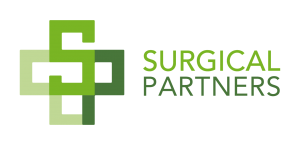This blog was originally published by www.medicaldirector.com.
For any medical practice, sound book-keeping, record-keeping, tax and accounting practices can make all the difference when it comes to running the ‘business’ of the practice as smoothly as possible, and paving the way for sustainable financial growth.
Here are some helpful resources, tools and solutions that can help streamline your finance management and make life easier for both practice managers and clinicians.
1. RACGP Guide on financial management
Like any small business, medical practices are also exposed to the same financial risks and challenges. And as a medical practice grows, and the business structure becomes more complex, it’s even more important to start of with good financial habits and scalable, secure systems.
The RACGP guide, the ‘General practice management toolkit’ is a helpful, comprehensive resource that explains the principles of good financial management, helps you identify the sources of income and costs in general practice and helps you understand budgeting, forecasts and financial reports. It also has easy to read sample income v expenditures templates as well as balance sheet examples.
2. Department of health administrative record-keeping guide
The Department of Health’s Administrative record keeping guidelines for health professionals offers a detailed explanation of effective record-keeping habits for medical practices. In particular, it stresses the importance of sound record-keeping in the event a medical practice is subject to a tax audit.
The guide also contains a handy list of 10 administrative record-keeping tips that highlight the importance of:
- Planning and review
- Consistency
- Communication
- Delegation
- Training; and
- Technology
3. ATO Small business deductions checklist
The ATO offers a host of online tools, resources as well as helpful, interactive webinars on everything from business structures, record keeping to tax deductions and completing BAS statements. The deductions for small business page is also a good start for understanding the basics of what you can claim as a deduction such as staff wages, marketing, and business finance costs.
4. How technology can help
According to the Department of Health’s Administrative record keeping guidelines for health professionals, embracing technology can help improve the efficiency of your record keeping system, plus make the everyday workflow of practice staff so much easier. A comprehensive practice accounting like Surgical Partners, for instance, offers a streamlined system of financial management built specifically for medical practices to manage accounting reconciliation and doctor revenue.
Integrating seamlessly with a range of major accounting cloud providers such as xero and myob, the software is designed to automate workflows, help improve financial control and improve the efficient use of capital within a medical practice. Surgical Partners also fully integrates with MedicalDirector’s Pracsoft and Bluechip practice management solutions.
To find out more, visit: https://www.medicaldirector.com/marketplace/surgical-partners



.jpg)